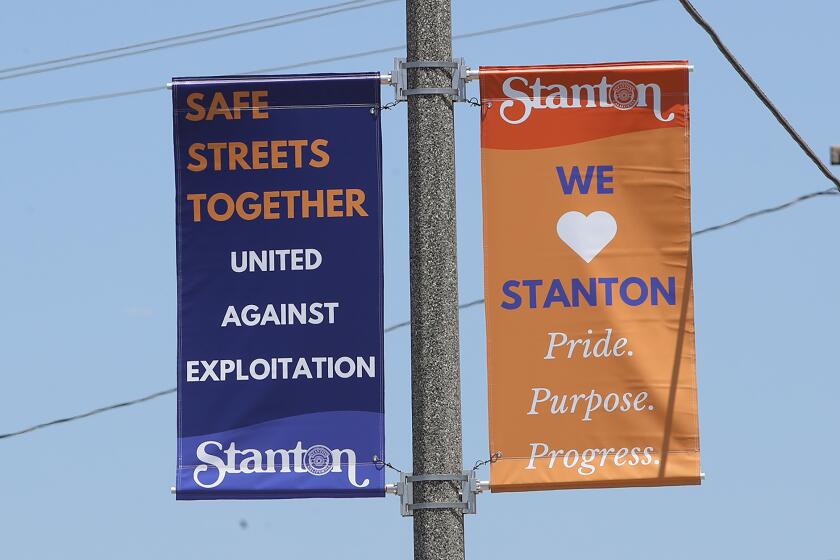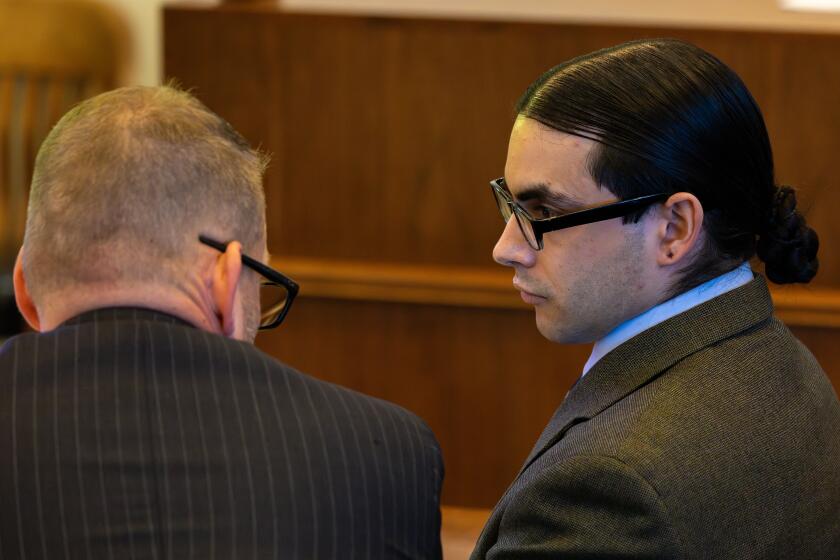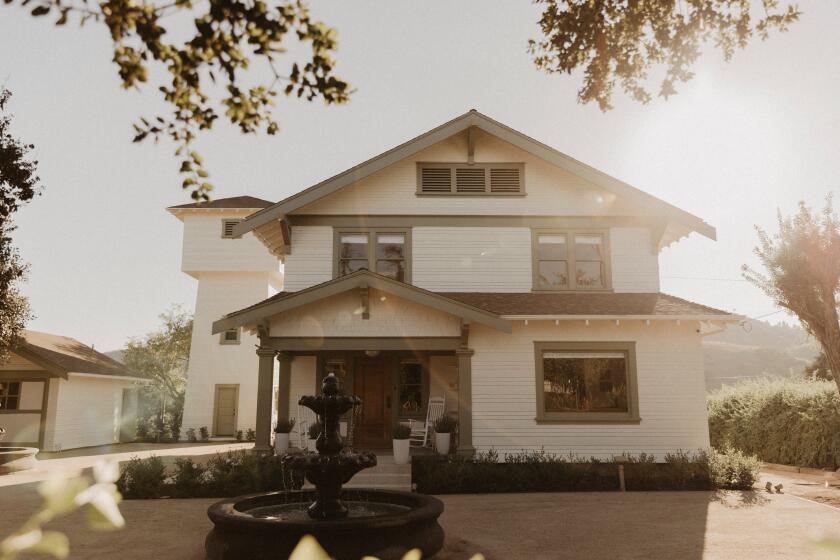Anaheim police who killed councilman’s cousin have history of fatal shootings
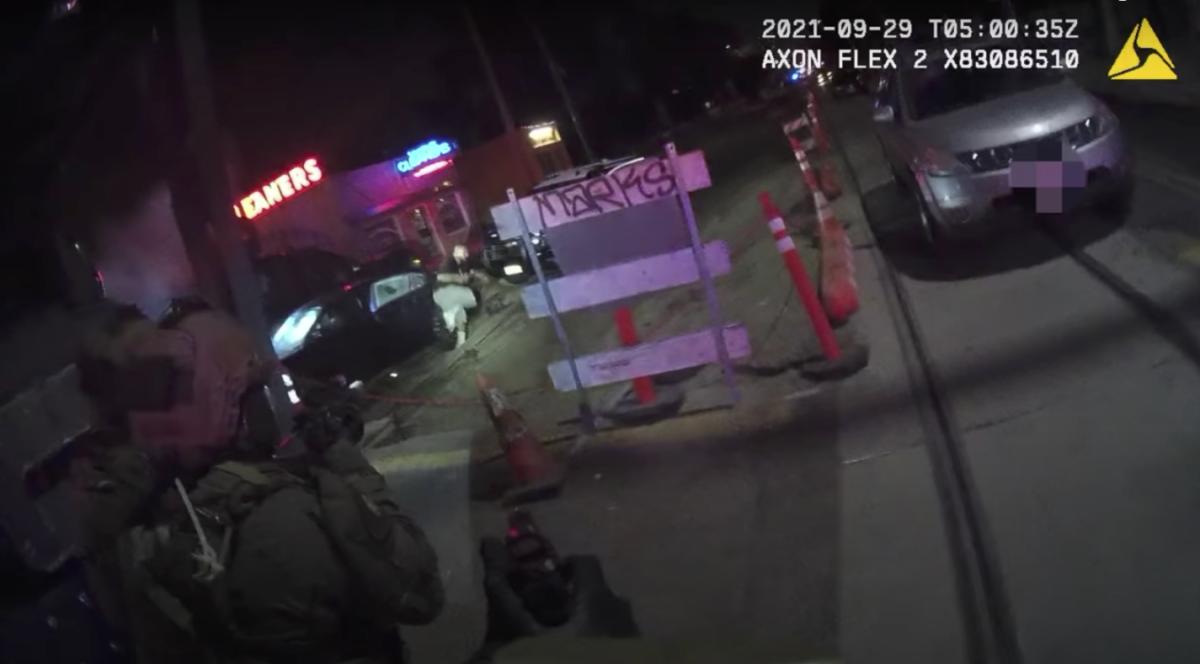
When Anaheim police officers fatally shot a Santa Ana city councilman’s cousin in September, it wasn’t the first time some of them have been involved in deadly shootings.
Anaheim officers Catalin Panov, Paul Delgado, Brett Heitmann and Kenneth Weber fired the fatal shots at Brandon Lopez on Sept. 28, following a car chase and hours-long standoff at a construction area in Santa Ana. Lopez, 33, was suspected of driving a stolen vehicle and had warrants for armed robberies, domestic violence and driving on a suspended license.
Body camera footage revealed that the officers mistook an empty water bottle in a black bag for a gun when they shot and killed Lopez.
The incident has drawn criticism from Santa Ana Councilman Johnathan Hernandez, who said police unnecessarily escalated the situation when they shot his cousin, who was suffering from a mental health crisis. Santa Ana Mayor Vicente Sarmiento compared Anaheim police to “a firing squad” and questioned the officers’ “provocative decision” to fire a flash bang into Lopez’s car.
The California Department of Justice is investigating the shooting under Assembly Bill 1506, which requires the department to investigate all police shootings resulting in the death of an unarmed civilian in the state.
A history of fatal shootings
For two of the officers, Panov and Delgado, this wasn’t the first time they’ve been involved in a fatal shooting.
Delgado has been involved in at least three other shootings, according to district attorney’s records and a 2017 report on Anaheim police use of force incidents from the American Civil Liberties Union of Southern California.
In 2018, Delgado was involved in a shooting that left Kenneth Yamashita-Magarro paralyzed from the waist down. While conducting surveillance on another individual, police mistakenly started tailing Yamashita-Magarro, wrongfully believing him to be the suspect.
Following a car chase that ended with Yamashita-Magarro crashing a car and a foot pursuit, he was shot in the chest, left leg and lower back. According to a district attorney’s report, police believed Yamashita-Magarro was reaching into his waistband for a gun. However, no gun was found on him. The district attorney’s office cleared Delgado and another officer last year.
Delgado was also involved in the fatal shooting of Robert Moreno in 2014. Moreno was shot 23 times after allegedly shooting a police dog and firing at police. Delgado and two other officers were cleared by the district attorney’s office.
In 2008, Delgado was also involved in the non-fatal shooting of Jose Francisco Rodriguez, according to district attorney’s records clearing him of any wrongdoing.
Rodriguez led police on a chase through Garden Grove and Anaheim before being boxed in by Anaheim SWAT armored vehicles in a parking lot. According to a district attorney’s report of the incident, he exited the vehicle suddenly with a shotgun and pointed it at officers before he was shot.
Rodriguez’s brother-in-law, Joel Martinez, told the Orange County Register at the time that Rodriguez was suffering from a mental episode.
“He seemed really depressed,” Martinez told the Register. “He was going through a lot — I was actually surprised how much he’s going through, that he was handling it. This is a crisis situation here.”
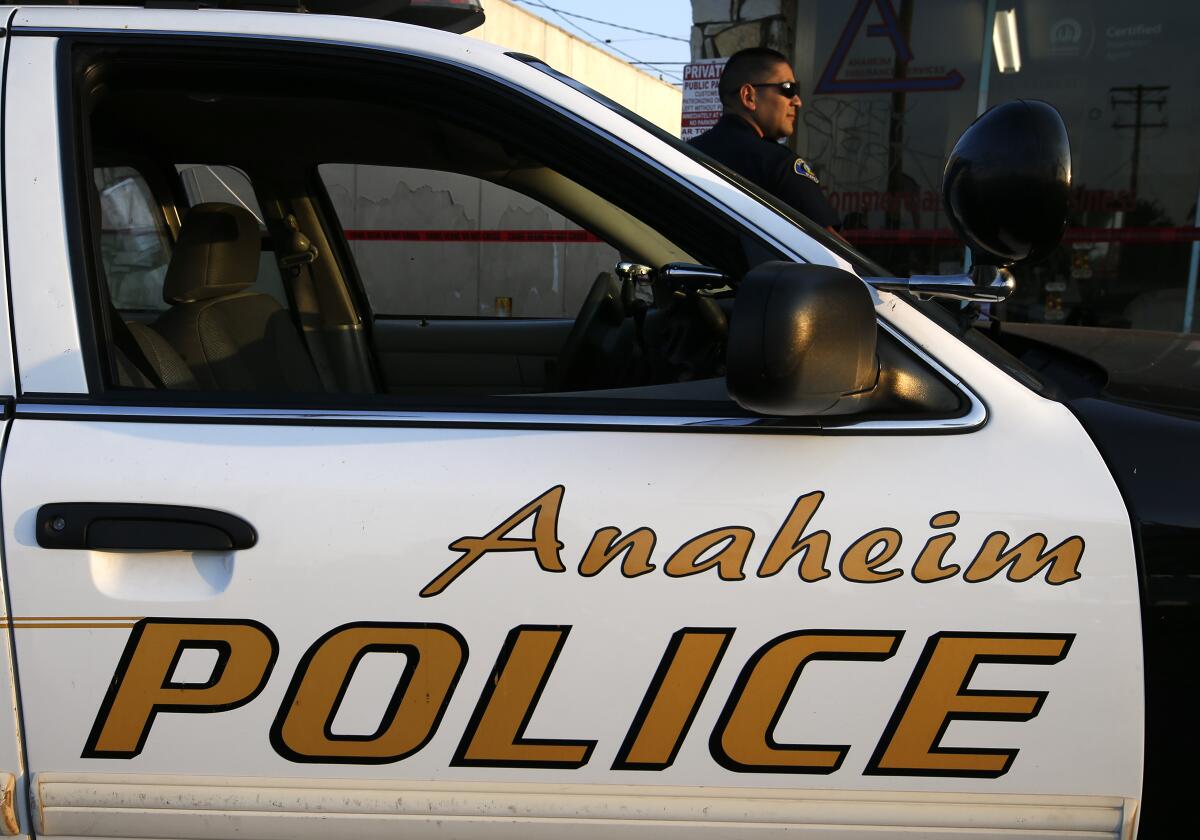
Panov has been involved in at least two other shootings.
In 2008, he and another officer shot and killed David Abrams on the 91 Freeway following a car chase. Police said Abrams had shot an officer in the leg, spurring the pursuit.
During the freeway incident, Norma Alicia Cortez-Gomez and Tereza Cortez ended up in the line of fire of police officers. The two women filed a lawsuit, claiming that Cortez-Gomez was shot in the abdomen, hand, back and shoulder by bullets from police as they fired at Abrams, who was taking cover behind their car. Cortez-Gomez was treated at a hospital and recovered. The city of Anaheim settled the case with the women for $300,000.
The lawsuit claimed that police officers placed the women “in a position of great danger” and risked “imminent severe injuries to their personal safety and well being that they would not have otherwise faced” in apprehending Abrams.
In 2014, Panov and five other officers shot and killed Steen Parker, who allegedly robbed a Fry’s Electronics store at gunpoint.
Leading up to the shooting, Parker was holed up in a car for a few hours as police tried to get him to surrender, including firing pepper balls and gas into the car. About three hours into the standoff, Parker appeared to fire a single round through the top of the car. In a district attorney’s report that cleared the officers of wrongdoing, an officer believed that Parker was trying to make it seem like he had committed suicide.
After an officer hit Parker with a beanbag round requested by Panov, Parker raised his gun and fired at Panov and another officer. Several officers opened fire, including Panov, who fired an entire magazine, the district attorney’s report says.
Heitmann has been present during two police shootings, though he didn’t fire his gun in either instance.
Heitmann was partners with Officer Nick Bennallack when Bennallack fatally shot Manuel Angel Diaz in 2012. A federal jury concluded in 2017 that Bennallack used excessive force when he killed Diaz, who was unarmed and running away from him in an apartment building courtyard. Protests erupted in Anaheim in response to the killing of Diaz and Joel Acevedo, who was killed a day after Diaz. Heitmann was also partners with Bennallack when Bennallack shot and killed Bernie Villegas in 2012, mistaking a Daisy Red Ryder BB gun for an actual shotgun.
Bennallack has been involved in four fatal shootings in eight years, including the Parker shooting with Panov.
In seeking comment from the officers involved in the Lopez shooting, Anaheim police spokesman Shane Carringer declined due to pending litigation from the Lopez family.
Anaheim city spokesman Mike Lyster said in an emailed comment this week that the Lopez shooting is unique and should be analyzed on its own.
“We never want to see loss of life involving our police, but we take issue with the narrative,” Lyster said. “Each incident involving our police is unique and needs to be looked at on its own. Seeking to draw conclusions from different incidents does a disservice to all involved.”
‘A firing squad’
According to a video released by Anaheim police last month, police chased Lopez for 35 minutes through Tustin, Irvine and Santa Ana until his car became stuck on tracks being constructed for the O.C. Streetcar in the 1200 block of West Santa Ana Boulevard in Santa Ana. Lopez was in the car for several hours as police commanded him to exit.
Sgt. Jacob Gallacher said in the video that a Santa Ana police officer who was monitoring Lopez’s movements in the car reported to other officers that Lopez was reaching under car seats and had a gun.
Less than an hour before the fatal shooting, Anaheim police took command of the incident from Santa Ana.
The video shows that about 30 minutes before Lopez was killed, a Santa Ana officer reports that he spoke with a member of the Lopez family, and they said he intended to commit suicide by cop.

Gallacher explains in the video that Anaheim police decided to shoot a “chemical agent” into the car “with the hopes that it would encourage him to surrender.” After a nearly four-hour standoff, police deployed gas and a flash bang at the car.
Body camera footage of the shooting shows Lopez leaving the car after the flash bang was fired and the car filled with gas. Within a few seconds, police shout “Hands up!” and “Gun!” Several shots ring out and Lopez falls to the ground.
Gallacher said Lopez had a “black object in his right hand,” and officers were still concerned about a potential gun after he was shot because he was lying on his hands. A nonlethal projectile was fired at his body, but he was unresponsive. He was dead at the scene.
Gallacher said that a gun was not found. Instead, police found an empty plastic water bottle inside a black Guess bag underneath Lopez’s body. A note from Lopez was found in the car, along with a knife and drug paraphernalia.
Potential lawsuit on the horizon
The Lopez family filed a claim last week seeking $20 million in damages from the city of Anaheim, contending that the officers used “excessive and unreasonable force” against Lopez. The family is being represented by well-known civil rights attorneys Vicki Sarmiento, who is the sister of Vicente Sarmiento, and Dale Galipo, who represented the Diaz family in the case that found Bennallack used excessive force.
The claim is a precursor to a lawsuit.
During a phone interview this week, Vicki Sarmiento said that the Lopez shooting exemplifies that the Anaheim Police Department lacks sufficient de-escalation training for its officers. She specifically questioned the deployment of the flash bang, which can cause temporary blindness and hearing loss, according to the American Journal of Operations Research.
“What was the plan once he exited, given the fact that it does cause temporary hearing loss and disorientation?” she said. “So I think the very use of that flash grenade ... and then to shoot him within seconds, was catastrophic in terms of training.”
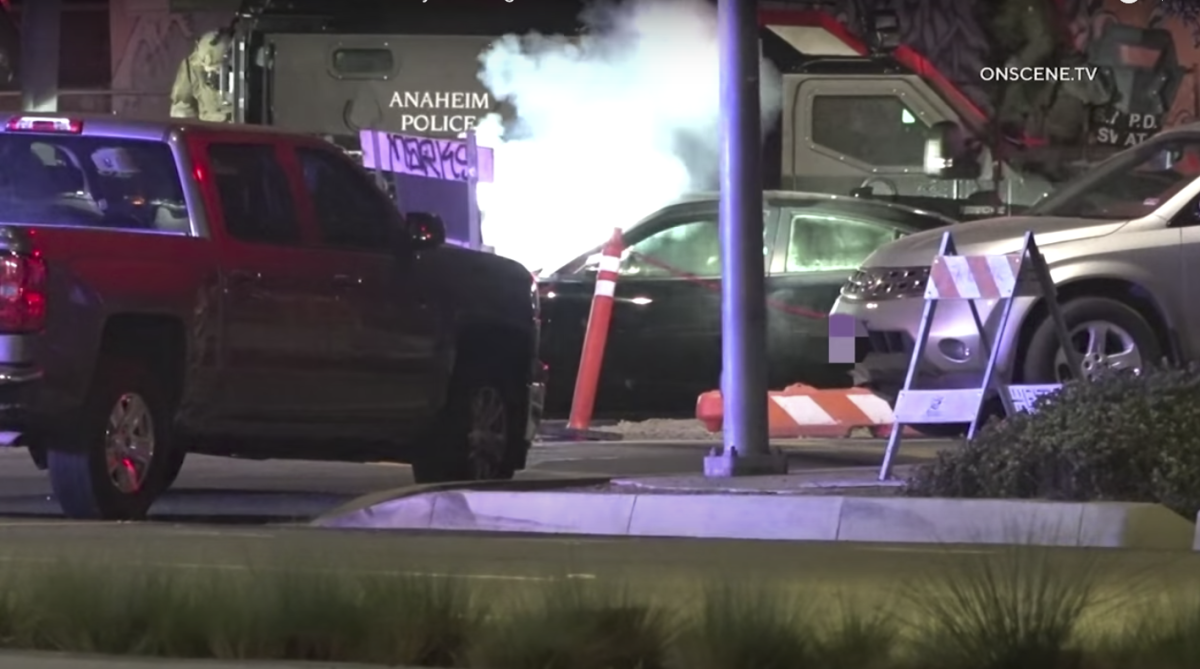
Vicki Sarmiento also said that the officers had time on their hands and could have used Lopez’s family to help get him out of the car rather than resorting to the flash bang.
“I don’t really understand where the breakdown took place, why they wouldn’t let them communicate or have a mental health person there communicate with Brandon,” she said.
The attorney also mentioned that the legal team will be looking into the Santa Ana police officer who announced that Lopez had a gun.
Jennifer Rojas, policy advocate and organizer with the American Civil Liberties Union of Southern California, said over the phone that the killing of Lopez illustrates why there needs to be police reform in Orange County and that officers are not adept at responding to mental health crises. Rojas co-wrote the 2017 ACLU report on Anaheim use of force.
“The Anaheim Police Department has an unacceptably long history of killing Black and Latino residents, low-income residents and people in behavioral health crises,” Rojas said. “The fact that the officers who were involved in killing Brandon Lopez are repeat shooters raises questions about the effectiveness of the reforms that Anaheim PD has put in place since the back-to-back shootings of Joel Acevedo and Manuel Diaz back in 2012. Having a police review board and independent auditor, strengthened training, body cameras — that has not prevented police officers from killing community members who are in a behavioral health crisis.”
All the latest on Orange County from Orange County.
Get our free TimesOC newsletter.
You may occasionally receive promotional content from the Daily Pilot.

